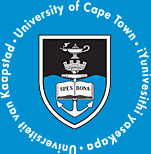Participant Institutions
Both the School of Agribusiness and Resource Management and the Economics Department of ASU will be involved in ECOCEP, with the Center for Environmental Economics and Sustainable Policy at the School of Business serving as the main ECOCEP contact point.
The research most relevant for our project is done at the ANU Crawford School of Public Policy, especially at the Climate Change and Energy program of the Centre for Applied Macroeconomic Analysis (CAMA), which is serving as an ANU hub for our project.
The three participating CUNI units, the Institute of Economic Studies (IES), CERGE and the CUNI Environment Center are engaged in world-class economic research and education.
The C.H. Dyson School of Applied Economics and Management, which is the main partner in our project, is an internationally recognized centre of excellence in agricultural and resource economics. The academic exchange participants will also benefit from the resources of the Department of Economics at CORNELL.
FEEM is a leading international centre in environmental and resource economics since its foundation in 1989. One of its aims is to promote interaction between academic, industrial and public policy spheres in order to comprehensively address concerns about economic development and environmental degradation.
The Harvard University participation in ECOCEP will be coordinated through the Harvard Center for Risk Analysis (HCRA). It is an interdisciplinary centre at the Harvard School of Public Health, which is one of the 10 colleges of Harvard University.
Due to its proximity to the unique Baikal Lake, Irkutsk State University is historically the leading Russian centre in water ecology and environmental economics in general.
The participation of TSE in ECOCEP will be coordinated through the TSE unit LERNA specialized in environment and natural resources economics, in particular in water and energy.
Both Economics and Agricultural Economics faculty at McGill is involved in ECOCEP. The McGill Department of Economics provides visiting ECOCEP researchers with access to other Montreal universities through its membership in CIREQ (Inter-University Centre for Research in Quantitative Economics).
The NSU is very active in international cooperation. Important topics of this cooperation are the economic potential of the development of the Russian-Chinese scientific and technical cooperation in the energy technologies or the trans-border environmental pollution connected with energy and water resources.
In environmental economics CEFIR/NES leads the international consortium established in order to create and develop a spatial-economic-ecological model for the assessment of sustainability policies of the Russian Federation (SUST-RUS) financed by FP7.
The participation in our project will be a joint effort of the Oxford Centre for the Analysis of Resource Rich Economics, which is a part of Department of Economics, and The Environmental Change Institute, which is OXFORD’s interdisciplinary institute for research on the complex processes of global environmental change.
The UA Department of Economics is one of the largest in New Zealand and while being the top economics department in New Zealand, it is also among the top economics departments in the whole Australasia. The energy economics research is conducted by faculty members in the Energy Centre, which is a part of the Department of Economics.
University of California is consistently rated among the top institutions in the world. While the Economics Department at Berkeley is consistently ranked about 5th position in the US, the Agricultural and Resource Economics (ARE) Department is considered to be the best one in the US and the world. Researchers from the whole system of UC may participate in the project.
ECOCEP will involve the best African researchers from Environmental Economics Policy Research Unit at the School of Economics and from the Energy Research Centre at the UCT.
At the University of Maryland our project combines resources of its Department of Economics and Department of Agricultural and Resource Economics.
Climate change and energy economics research at the UQ is concentrated in its School of Economics. While this School is an Australian leader in environmental economics, it also has a strongest economic theory group in Australia and a distinguished program in econometrics.
















